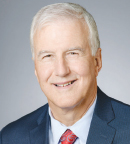The American Cancer Society (ACS) and the Clinton Health Access Initiative (CHAI) announced agreements with the pharmaceutical companies Pfizer, Novartis, and Mylan to expand access to 20 cancer drugs in 26 countries in sub-Saharan Africa and Asia. Purchasers are expected to save an average of 59% for medicines procured through the agreements.

Isaac Adewole, MBBS
“With the rapidly growing burden of cancer in Africa, it is crucial that we improve and expand access to high-quality, affordable treatment,” said Isaac Adewole, MBBS, Co-Chair, African Cancer Coalition and former Health Minister of Nigeria These agreements build on those announced in 2017 that have already delivered substantial savings and increased treatment availability in several countries, including Nigeria. By targeting the treatment needed for the cancers that cause the most deaths, these new agreements will help us to improve on quality of lives and close the mortality gap for Africans with cancer.”
Broadening Therapeutic Options for Patients
Medications included in the agreements cover recommended regimens for 27 types of cancer and enable complete chemotherapy regimens for the three cancers that cause the most deaths in Africa—breast, cervical, and prostate. These cancers are highly treatable and account for 38% of cancers in the countries covered in the agreements. The new agreements include both chemotherapies and endocrine therapies aligned to evidence-based guidelines geared toward populations of sub-Saharan Africa, and they expand access to additional formulations, including those essential for treating childhood cancer.
“With cancer cases increasing at such a rapid rate in sub-Saharan Africa, access to affordable cancer treatment that meets the quality standards set by a stringent regulatory authority is imperative,” said William G. Cance, MD, FACS, Chief Medical and Scientific Officer, ACS. “This collaboration has the potential to drastically impact access to care and save countless lives.”

William G. Cance, MD, FACS
Meeting a Growing Need
Sub-Saharan Africa’s cancer burden is significant and increasing. In 2018, there were an estimated 811,000 new cases of cancer and 534,000 deaths from cancer in the region. Cancer patients in sub-Saharan Africa are twice as likely to die as those in the United States, often due to late diagnosis and lack of access to treatment. Based on population aging alone, annual cancer deaths in sub-Saharan Africa are projected to almost double by 2030. The new agreements reach 23 countries in Africa, covering 74% of the annual cancer cases.
The new initiative will expand access to the priority medications and formulations in the agreements to additional countries. All of the medications included in the agreements meet the quality standards set by a stringent regulatory authority such as the U.S. Food and Drug Administration or the European Medicines Agency. These medicines will be available for purchase at newly and independently negotiated prices in the designated countries, and the companies have committed to monitoring the impact of their respective agreements with CHAI.
ACS and CHAI began working together in 2015 to improve care and treatment of cancer in sub-Saharan Africa, working with governments and cancer treatment institutions to address market inefficiencies, improve supply chains, and increase procurement to ensure quality medications were available at affordable prices. This collaboration has shown that access to high-quality cancer treatments can be expanded in a sustainable way.
The new market access agreements are part of a broader effort to improve access to quality cancer care in Africa. In 2019, ACS, CHAI, the African Cancer Coalition, the National Comprehensive Cancer Network®, and IBM joined to form Allied Against Cancer. This coalition is leveraging the strengths of each organization to connect with and empower the African oncology community to deliver high-quality cancer care and is working to pursue additional market-based collaborations to increase access to cancer medicines in the region.

